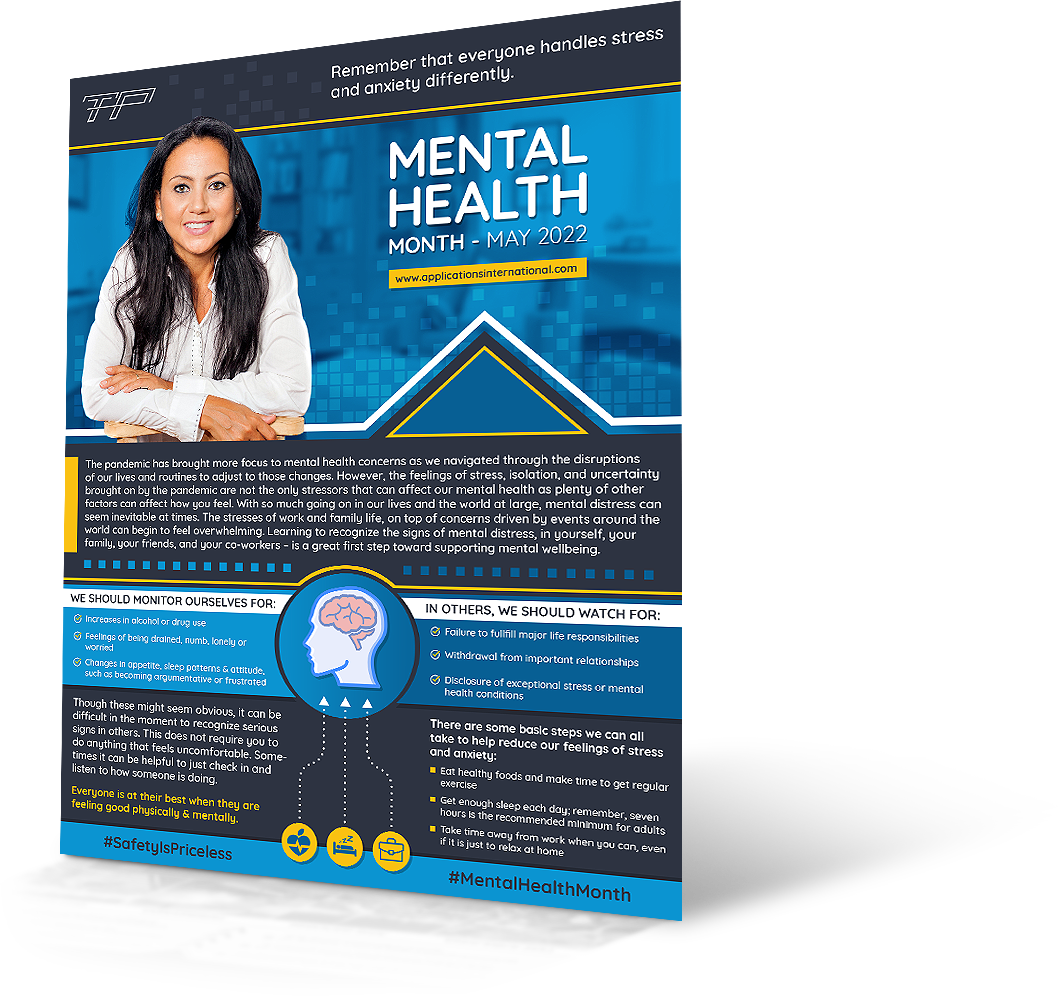Mental Health Awareness

The pandemic has brought more focus to mental health concerns as we navigated through the disruptions of our lives and routines to adjust to those changes. However, the feelings of stress, isolation, and uncertainty brought on by the pandemic are not the only stressors that can affect our mental health as plenty of other factors can affect how you feel. With so much going on in our lives and the world at large, mental distress can seem inevitable at times. The stresses of work and family life, on top of concerns driven by events around the world can begin to feel overwhelming. Learning to recognize the signs of mental distress in yourself, your family, your friends, and your co-workers; is a great first step toward supporting mental well-being.
Remember that everyone handles stress and anxiety differently.
WE SHOULD MONITOR OURSELVES FOR:
- - Increases in alcohol or drug use
- - Feelings of being drained, numb, lonely or worried
- - Changes in appetite, sleep patterns and attitude, such as becoming argumentative or frustrated
Though these might seem obvious, it can be difficult in the moment to recognize serious signs in others. This does not require you to do anything that feels uncomfortable. Sometimes it can be helpful to just check in and listen to how someone is doing.
Everyone is at their best when they are feeling good physically and mentally.
IN OTHERS, WE SHOULD WATCH FOR
- - Failure to fullfill major life responsibilities
- - Withdraw from important relationships
- - Disclosures of exceptional stress or mental health conditions
There are some basic steps we can all take to help reduce our feelings of stress and anxiety:
- - Eat healthy foods and make time to get regular exercise
- - Get enough sleep each day; remember, seven hours is the recommended minimum for adults
- - Take time away from work when you can, even if it is just to relax ay home